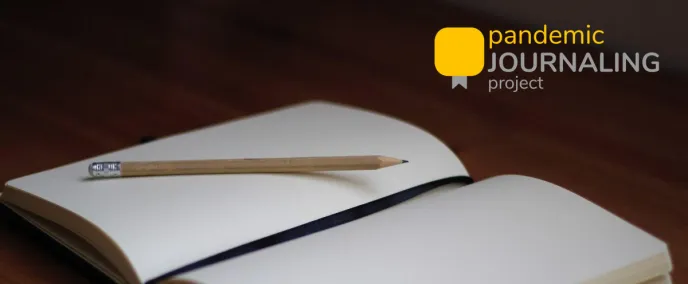The Pandemic Journaling Project

This spring, as the force and magnitude of the COVID-19 pandemic became increasingly clear, an interdisciplinary team at the University of Connecticut, Brown University, and Trinity College raced to create the Pandemic Journaling Project, a combined journaling platform and research study that lets anyone around the world create a weekly record of this turbulent time using text, voice recordings, and images, for themselves and for posterity. With versions in English and Spanish, anyone with access to a smartphone, tablet, or computer can contribute in only 15 minutes each week. While the Project is open to all, the team is especially committed to recording the experiences of communities disproportionately affected by the pandemic – especially essential workers (in health and other sectors) and communities of color, who face significantly higher rates of COVID-19 risk and infection. Participants will be able to view and download a full archive of their own responses via a password-protected website and, if they choose, give permission to share their entries on the project’s Public Journal Entries page. After 25 years, all contributions will become part of a publicly accessible historical archive.
Teaming up with a diverse Advisory Board comprised of experts in history, psychology, digital humanities, and other fields, Project founders Sarah Willen (UConn) and Katherine Mason (Brown), both anthropologists, are pleased to see the platform emerge as a meaningful space for weekly reflection. At the same time, the team is working to “pre-design an archive” that will have value to researchers in humanities, social sciences, and health fields, now and in the future. Before creating their first journal entries, participants are asked basic questions about demographics, COVID-19 exposure, and current health status. Two journaling opportunities follow, including one recurring question about the impact of the pandemic on one’s life and a choice of two weekly questions on topics such as work and finances, health, and encounters with discrimination and racism, as well as experiences of social connection, community, and the arts. Although the Project initially was developed to capture experiences of the COVID-19 pandemic, its scope has expanded, by necessity, to include participants’ reactions to the death of George Floyd and the widespread social and political unrest his murder has ignited across the United States and around the world. This expanded focus hews closely to the Project’s declared mandate, which greets website visitors: “Usually, history is written only by the powerful. … The goal of the Pandemic Journaling Project is to make sure that ordinary people struggling through this pandemic have their voices heard, and their experiences remembered.”
The Pandemic Journaling Project was launched with seed funding from various units at the University of Connecticut, including the Office of Global Affairs, the Human Rights Institute, and the Institute for Collaboration on Health, Intervention, and Policy (InCHIP), as well as the Center for Urban and Global Studies at Trinity College and the Population Studies Training Center at Brown University.
Learn how to contribute to the Humanities for All blog here.